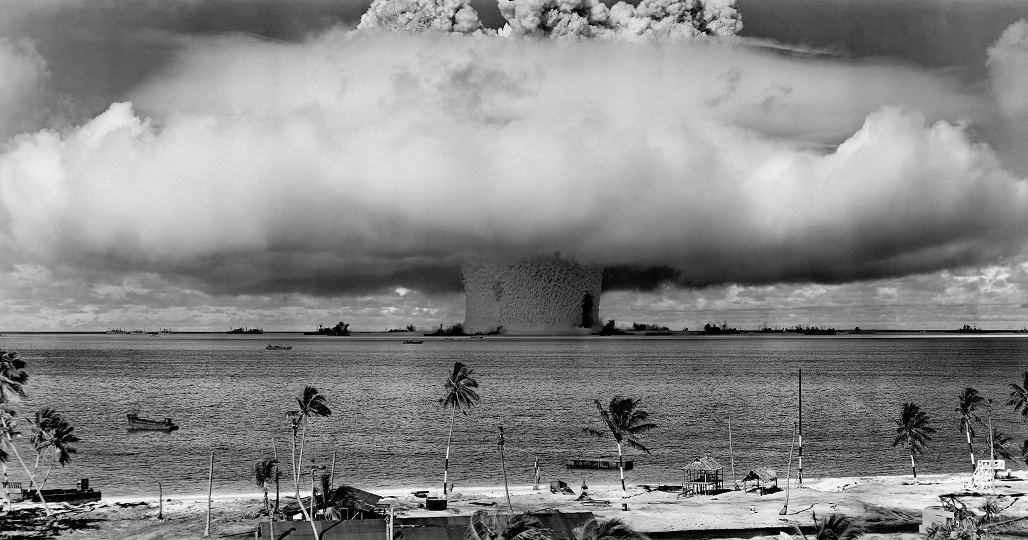Local News
Trump will face tough questions on future of nuclear arsenal

President’s team has said he will modernize weapons
WASHINGTON — For all the concerns raised in the presidential campaign about Donald Trump’s fitness to command America’s nuclear arsenal, the immediate questions he’s likely to face as president aren’t about launching these weapons, but modernizing them.
He’ll have to make politically fraught decisions about a U.S. nuclear arsenal that in some ways has become decrepit. Among the open questions: Can the U.S. get by with fewer? Is it time to take some off hair-trigger alert?
Trump’s transition website says he “recognizes the uniquely catastrophic threats posed by nuclear weapons and cyberattacks,” adding that he will modernize the nuclear arsenal “to ensure it continues to be an effective deterrent.”
The questions left unanswered: How much modernization is enough, and in a world of widening cyber threats, how vulnerable are U.S. nuclear weapons?
During the campaign, nuclear issues were discussed in sweeping terms. Trump caused stirs by suggesting that America’s Asian allies should no longer be covered by the U.S. nuclear umbrella if they don’t pay more for their defense – or that they should possibly obtain their own nuclear bombs. President Barack Obama and other critics questioned whether Trump could be counted on to avoid using nuclear weapons. Ten former nuclear missile launch operators wrote that Trump lacks the temperament, judgment and diplomatic skill to avoid nuclear war.
The state of the nuclear arsenal was rarely addressed. To the extent it was, Trump did not show a firm understanding of details. At a debate with Republican rivals, he appeared unfamiliar with the concept of a nuclear triad, the Cold War-era combination of submarines, land-based missiles and strategic bombers for launching nuclear attacks.
“I think, for me, nuclear is just the power, the devastation is very important to me,” he said.
Trump may need to get up to speed quickly on nuclear weapon issues. He will soon be overseeing a Pentagon where there is internal competition between big-dollar plans for modernizing conventional and nuclear weapons, said Hans Kristensen, a nuclear weapons expert with the Federation of American Scientists, which favors reducing nuclear arsenals.
“He has made various vague statements that indicate that he believes in a strong military but doesn’t seem to know much about nuclear forces and issues, is unconcerned about nuclear proliferation, yet also seems impressed by the ‘hugeness’ of nuclear weapons,” Kristensen said in an email exchange.
He said Trump’s comments and the views of his advisers make it seem likely his administration “will continue the full-scale (nuclear weapons) modernization plan that the Obama administration put in motion and Congress has largely supported.”
Yet Trump’s leading candidate for defense secretary, retired Marine Gen. James Mattis, is skeptical of the nuclear status quo.
“You should ask, ‘Is it time to reduce the triad to a diad, removing the land-based missiles?'” he told the Senate Armed Services Committee in January 2015. He recommended a review of fundamental questions to “clearly establish the role of our nuclear weapons. Do they serve solely to deter nuclear war? If so, we should say so, and the resulting clarity will help to determine the number we need.”
Had Hillary Clinton won the presidency she may have acted on her skepticism about the military’s claim to require a complete rebuilding of the nuclear arsenal, particularly the need for a new air-launched nuclear cruise missile, which detractors say is a luxury the nation easily can do without.
Obama agreed to fully modernize the nuclear force as the political price for Senate approval of the 2010 New START arms control treaty negotiated with Russia during Clinton’s tenure as secretary of state. The modernization entailed a commitment of hundreds of billions of dollars that critics say is unaffordable.
Non-government groups are studying the need for modernization and the vulnerability of the arsenal. The Nuclear Threat Initiative, a research and advocacy group whose co-chairman is Sam Nunn, the former Democratic chairman of the Senate Armed Services Committee, is studying nuclear terrorism as well as the cyber threat to nuclear command-and-control systems.
“What if hackers spoofed a nuclear missile attack, forcing a miscalculated retaliatory strike that could kill millions?” the group asks in a description of its project.
Along with the cyber aspect of nuclear security is a parallel question: whether the U.S. should threaten the use of nuclear weapons in response to a catastrophic cyberattack.
New administrations often order up a broad and deep review of nuclear policy to lay the groundwork for decisions like some of those facing Trump. The Obama White House undertook a “nuclear posture review” in 2010 that concluded, for example, the U.S. should maintain all three legs of the nuclear triad.
In the years since that review, a growing number of people have questioned the wisdom of sticking to the same nuclear structure. William J. Perry, who served as secretary of defense in the administration of President Bill Clinton, has argued for eliminating the land-based missile “leg” of the triad.
Obama considered, but ultimately left for his successor, other sticky nuclear issues, including decisions on how to respond to what the Obama administration says are significant violations by Russia of a 1987 nuclear arms control agreement with implications for U.S. and European security.

